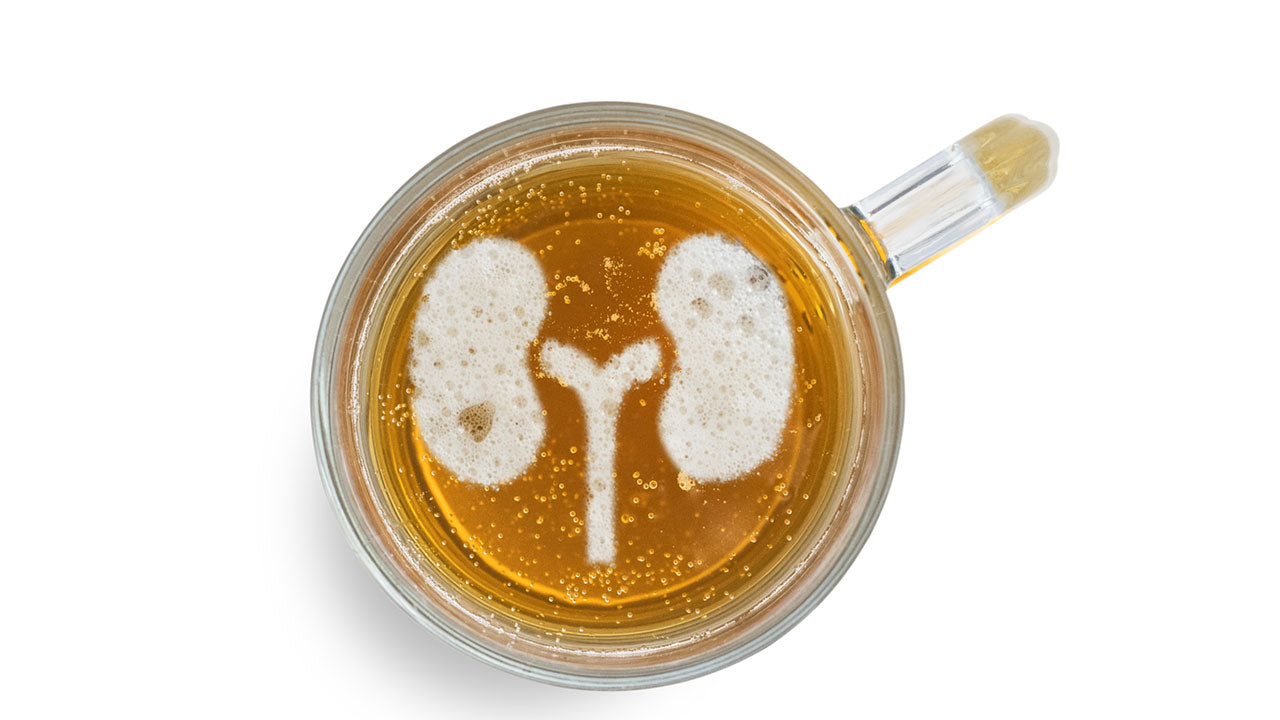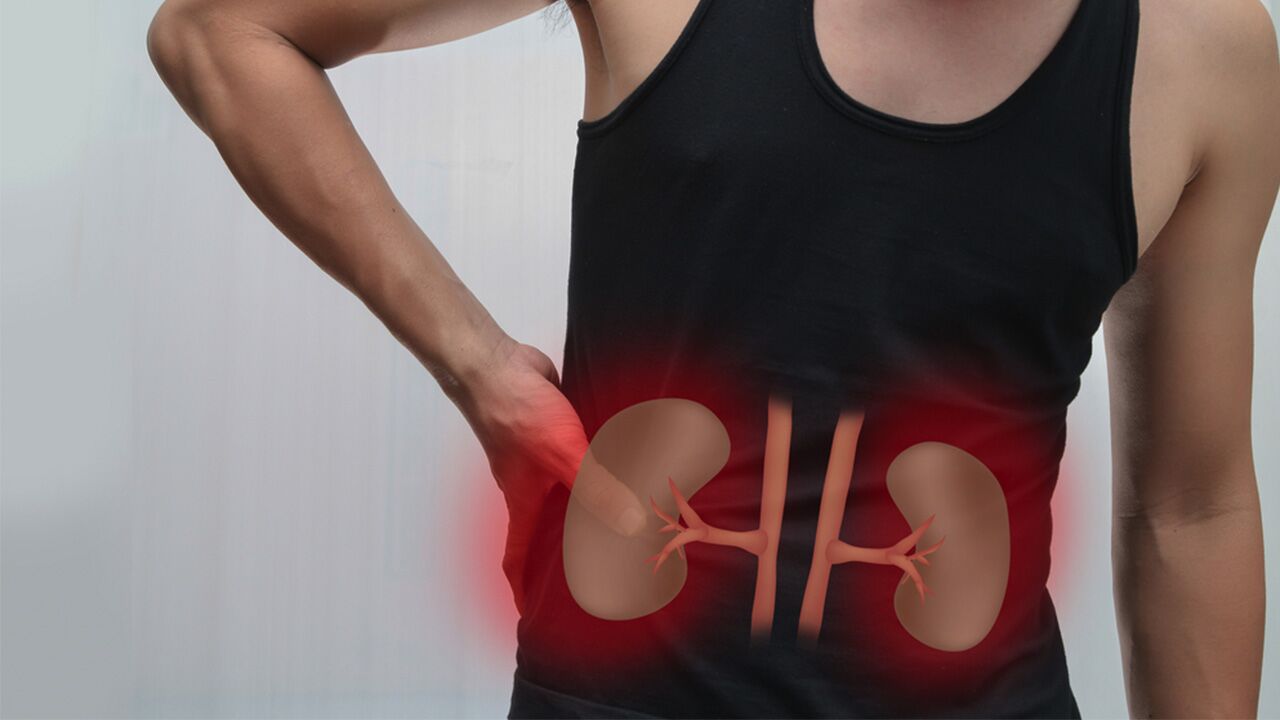Kidney Infections: The Symptoms and Solutions
 By: by Amino Science
By: by Amino Science

A kidney infection is a serious health condition that needs immediate medical treatment. This article details the signs and symptoms of kidney infection, the diagnostic process, and the treatment options so you can determine whether or not it's time to seek medical care.
What Is a Kidney Infection?
The medical term for an infection in your kidneys is pyelonephritis. It can develop from urinary tract or bladder infections that spread to one or both of your kidneys, and it can be a life-threatening condition. If you experience the following symptoms, seek medical evaluation immediately.
The Symptoms of a Kidney Infection
This list includes possible kidney infection symptoms, and due to the seriousness of such infections, if you experience them you're encouraged to seek health care as soon as possible.
- Cloudy urine (or urine containing blood or pus)
- Pain in your groin, lower back, side, or abdomen
- Nausea
- Vomiting
- Frequent urination
- Burning or painful urination
- High fever
- Chills
An untreated kidney infection can quickly lead to sepsis and possible death, so do not hesitate if you are experiencing these symptoms, or if you suspect them in a person you care for like a child or an elderly parent.
The Causes of Kidney Infection
Your kidneys reside in your upper abdomen. These two fist-sized organs filter waste out of your bloodstream and into your urine for elimination from the body. They also work to regulate your electrolytes and water retention and are vital to human survival.
Bacteria like Escherichia coli (E. coli) can enter the kidneys via the urethra and bladder, where the bacteria can multiply and spread. Bacteria can also arise from other sources in the body and be spread via the bloodstream, or can arise from something blocking the flow of urine (like a kidney stone or an enlarged prostate).
The Risk Factors for Kidney Infection
Since we all have kidneys, we are all at risk of developing a kidney infection of some sort, but there are certain situations and conditions which make infection more likely.
- Urinary catheter use: Because a catheter enters the urethra, it can introduce bacteria.
- Compromised immune system: Taking immunosuppressant drugs, or having conditions like HIV/AIDS or diabetes, can increase the risk of kidney infection.
- Urinary tract damage: Any damage that causes urine retention or backup can lead to kidney infection. Urine backing up into the kidneys is a condition known as vesicoureteral reflux.
- Urinary tract infection: UTIs account for at least 1 in 30 kidney infection cases.
- Being female: Due to the proximity between urethra and anus, plus the shorter urethra that characterizes female anatomy, women are statistically more likely to contract a kidney infection due to a UTI.
- Being pregnant: Pregnant women are even more likely to have a kidney infection due to shifts that happen to the urinary tract during pregnancy.
If you have a UTI, seek medical intervention before it progresses to a severe infection. Likewise if you have unexplained lower back pain, abdominal pain (common kidney pain locations), or any other suspicious symptoms, consult a doctor as quickly as possible for treatment.
How Kidney Infections Are Diagnosed
A doctor may conduct a medical history survey to determine your health information and risk factors for kidney infection, and then order tests or conduct a physical exam of the genital area. Tests may include:
- X-rays to assess for urinary system blockage
- A rectal exam for men to evaluate the prostate gland
- MRI, ultrasound, or CT scan of the kidneys
- A urine culture to determine the type of bacteria involved
- Urinalysis to check the urine for bacteria or white blood cell presence
Kidney Infection Treatment Options
Depending on the nature and severity of your kidney infection, treatment options may vary. Once your urine tests have been evaluated, a doctor may prescribe oral antibiotics, recommend you drink plenty of fluids to help clear out the infection, and issue other medical advice to help you avoid kidney problems in the future.
If you are given antibiotics, be sure to take them as directed and to completion to effectively eliminate the infection and avoid other serious complications like sepsis, chronic kidney disease, or kidney failure. Some instances may even call for surgical intervention and need prolonged medical attention. Ask your doctor about supporting your recovery with Heal, an essential amino acid supplement designed to help you recover from infection faster.
Kidney Infection Recovery Tips
If you are sent home with a 2-week course of antibiotics, you can use a heating pad to help reduce your kidney pain or take over-the-counter pain killers like ibuprofen (avoid acetaminophen or Tylenol as it can cause more kidney harm). Be sure to drink at least 8 glasses of water and/or cranberry juice each day to help your body clear out the bacteria afflicting your organs.
Take Care of Yourself and Your Kidneys
Kidney infections, especially if they are caught early enough, can be managed and completely cured. Your kidneys are some of the hardest-working organs you've got detoxifying your body every day, so if you suspect they're in danger or besieged by bacteria, seek medical assistance right away to get them back to functioning.


Up to 25% off Amino
Shop NowTAGS: conditions
Join the Community
Comments (0)
Most Craveable Recipes




 833-264-6620
833-264-6620



















